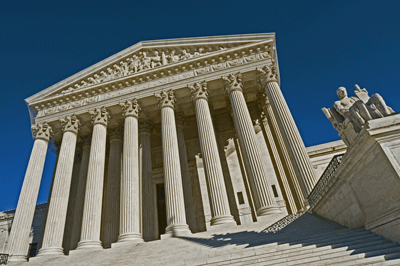Links in “Discriminatory Practices/Disparate Impact”
- World Bank Turns Attention on Diversity and Inclusion
World Bank Group recently announced the creation of an External Advisory Panel for Diversity and Inclusion. The announcement comes as no surprise following the newly released diversity standards created based on Dodd-Frank. The panel is meant to provide a conduit to the global community to serve as a sounding board for advice on matters relating to diversity and inclusion. [7/23/15]
- Action Taken Against Honda for Alleged Discriminatory Auto Lending Practices
Last week, the CFPB and DOJ announced a settlement to resolve alleged discriminatory auto lending practices by American Honda Finance Corporation against minority borrowers. Honda's settlement with the DOJ is subject to court approval. [7/22/15]
- Honda Set to End Discriminatory Lending Against Minorities
Past practices at Honda have cost minority borrowers thousands of dollars in higher interest rates compared to their white peers, with no regard to credit history. The company recently reached an agreement with the CFPB and Department of Justice to reduce discretionary markups by dealerships and implement a new compensation system. The CFPB and DOJ have high hopes that Hondaâs actions will galvanize the rest of the industry to follow suit. [7/15/15]
- What the Supreme Court’s Decision on Disparate Impact Didn’t Settle
The Supreme Court's decision that disparate impact claims are cognizable under the Fair Housing Act did not address claims under Equal Credit Opportunity Act. Here's an analysis of the material differences. [7/6/15]
- CFPB’s “Discrimination and Retaliation” Under Congressional Spotlight
Witnesses in a House Subcommittee hearing allege that the CFPB has the worst track record of all federal financial agencies of protecting its own employees against discrimination. "The CFPB is more concerned with bad press than the underlying problem." [6/29/15]
- Supreme Court Upholds Use of Disparate Impact in Housing
By a narrow vote the Supreme Court has ruled that the Fair Housing Act permits plaintiffs and regulators to use evidence of disparate impact to prove discrimination in housing. It is not necessary to show intent in order to prove disparate impact. [6/26/15]
- Disparate Impact Silver Lining: Plaintiff Must Get Specific
While the U.S. Supreme Court's ruling on disparate impact is giving heartburn to many in the industry, one silver lining is that the court made clear that a disparate-impact case can't rely on just statistics, but must also cite the specific policy that causes the disparate impact. Not much of a silver lining, but it's something. Brace yourselves. [6/26/15]
- Supreme Court Tips Towards Disparate Impact
The Supreme Court, in a 5-4 opinion, upheld certain elements for the use of disparate impact regarding FHA, but also emphasized the importance of establishing causation and made clear that mere statistical disparities will not suffice to establish it. The decision includes guidance and limits on disparate impact charges, but does not eliminate the vulnerability of the financial service industry. [6/26/15]
- Disparate Impact Ruling May End Up Hurting Those it is Intended to Help
The U.S. Supreme Court's decision yesterday in support of disparate impact may have "unintended consequences, such as causing financial institutions to shrink their operations rather than risk litigation, hurting the very groups it is intended to help." [6/26/15]
- BREAKING: Supreme Court Gives Stamp of Approval to Disparate Impact
The U.S. Supreme Court has ruled that disparate impact claims can legally be brought under the Fair Housing Act. Disparate impact means that even if business practices are on their face neutral in regards to the prohibited bases (such as race) if they can be shown to adversely impact a protected group, a legal claim can be brought. This is a big deal. [6/25/15]



